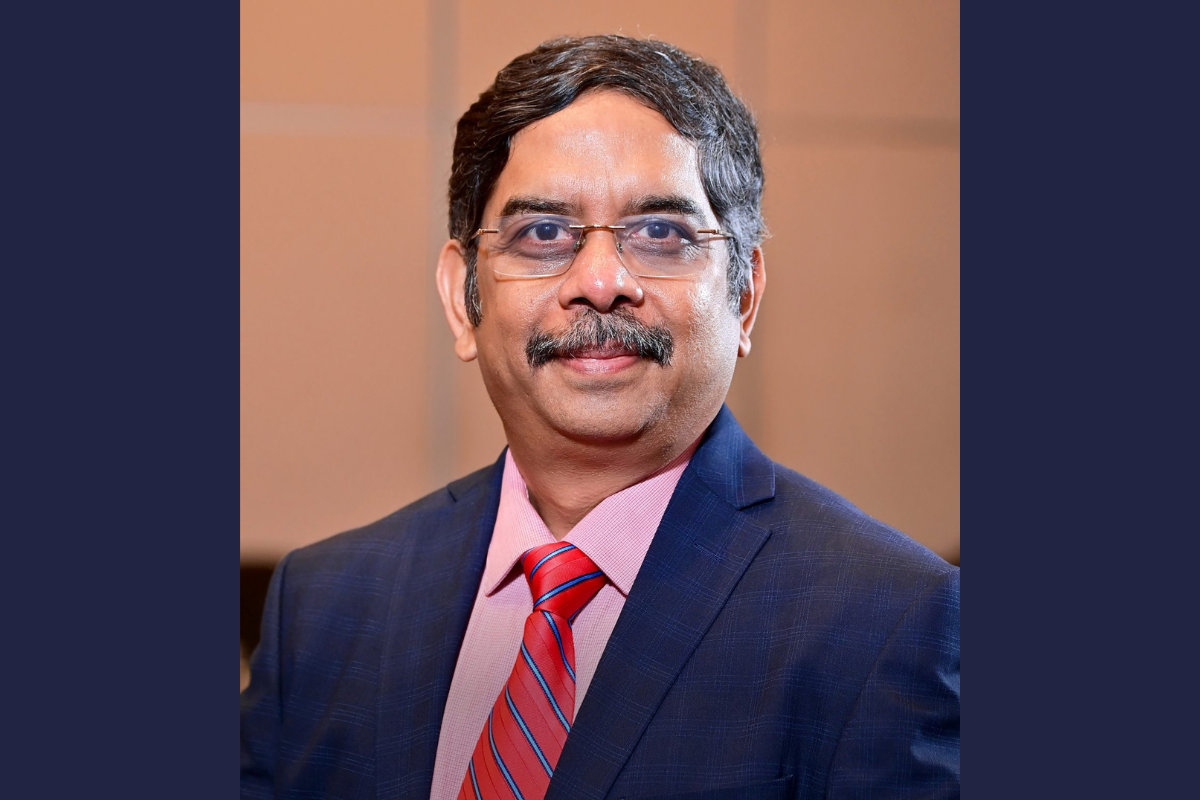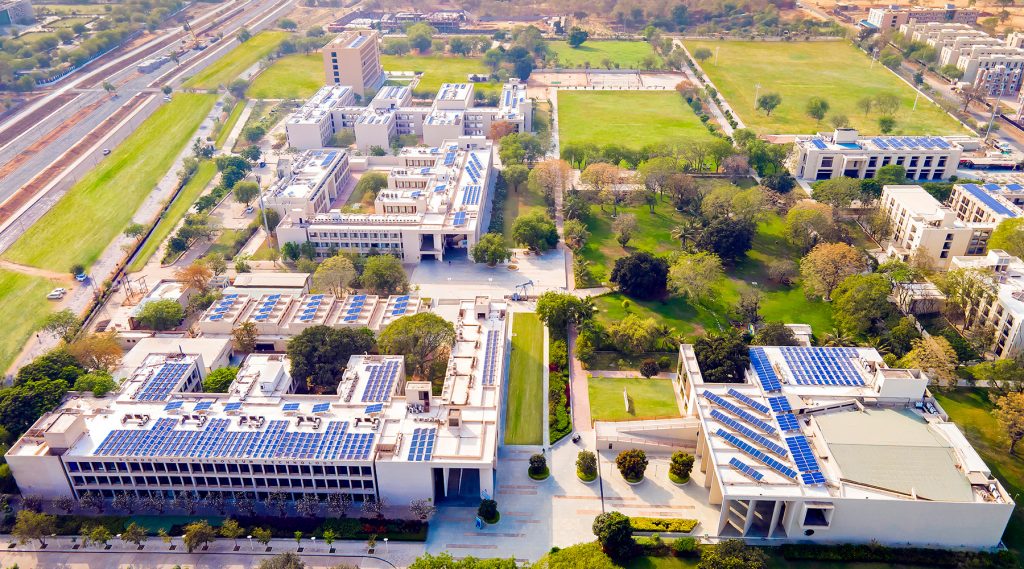Model Student: S Sundar Manoharan
Director General S Sundar Manoharan is driving an institution-wide transformation to ensure Pandit Deendayal Energy University’s students receive the education and training that industry – and society – needs.
Gone are the days of the stereotypical teaching and learning pattern in universities, says S Sundar Manoharan, Director General of Gandhinagar’s Pandit Deendayal Energy University (PDEU).

"With the digital transformation, the monotonous way of teaching and learning has completely been removed and, in its place, an adventurous new form is emerging," he reveals.
He thinks both students and faculty staff need to embrace the changes. "They should be thankful about a moment like this in human history, where we are literally taking an exponential pathway to learning."
As a specialist energy education and research university, with a particular focus on oil and gas, this shift has translated into the creation of what Manoharan calls "a model Industry 4.0 campus".
"We have restructured the entire curriculum, adopting all the demands and elements of Industry 4.0," he explains. "Now, a third of our courses are experiential, skill-based learning, against the traditional classroom-based teaching."
Much of the transformed curriculum, known as Curriculum 2020, was fixed while navigating the challenges COVID-19 stay-at-home orders presented to educational institutions.
"We are very happy to say our curriculum is comparable to any of the premier institutions in our country," he enthuses.

We have restructured the entire curriculum, adopting all the demands and elements of Industry 4.0.
Translating demand
However, that’s not where the changes end at PDEU. "Close on the heels of the curriculum revamp, we have also engineered another vertical called translational research," Manoharan says, referring to the term that describes the translation of scientific discoveries into practical outcomes.
The "captivity", as he refers to the COVID-19 pandemic, allowed him and his team to take a deep look at some of the disruptive technologies developed at PDEU and encourage the faculty to map their translational readiness level.
The result was more than 700 new publications and around 250 design process and product patent applications, almost all granted and published. "It’s been a phenomenal jump and clearly shows that more than 30 percent of our faculty members are trying to reach societal and industry demand with their research," he points out.
Investment has followed. In addition to an injection of US$1.35 million in the past few years, a new six-story building on campus dedicated to this trend was inaugurated in November 2020. Called the Translational Research Centre, the building is dedicated to the technologies that are "ripe and ready for industry and social impact", or Industry 4.0 technologies such as artificial intelligence, machine learning and industry Internet of Things.
At a Crossroads
"We are in a very crucial part of the history of educational institutes," Manoharan states. In the medium-term, he expects the adoption of the government’s National Education Policy 2020 to foster a more vibrant ecosystem for learning, especially the Academic Bank of Credits, which essentially allows students to design their own degrees.
"We are also bringing new campuses to PDEU and we want to take our curriculum to foreign soil, so we can build a perfect ecosystem for the Industry 4.0 learning processes."
A mirror to industry
Manoharan has barely paused for breath since he joined PDEU in February 2020. He’s maintaining the fast pace as the focus turns to identifying areas where its students lack the finishing school concepts the industry demands.
"We have set our mind for the future on quality enhancement, keeping our students ready for industry adoption," he says.
In the past two years, PDEU has invested close to US$5 million on manufacturing skills and has become what he says is the first academic institution in South–East Asia to establish a 45-megawatt manufacturing line for solar photovoltaic panels for the semiconductor industry.
Manoharan understands this is an unconventional move but believes it’s a necessary one, as it seeks to teach students both the hard and soft skills of engineering – especially as the Indian government promotes self-sufficiency through its Make in India policy.
"This will allow our students to have a sensitivity toward the skills that are needed for the government’s semiconductor mission," he explains.
We want our students to be the highest quality as far as industry adoption is concerned.
Similarly, PDEU is one of the only institutions to invest in a high-end 3D printer for additive manufacturing, to print titanium-based products for the automotive and aerospace arenas.
"We want our students to be the highest quality as far as industry adoption is concerned. For this, we are focusing on hands-on and skill-based learning," Manoharan says.
He’s firm in the belief that both government and industry should be open to sharing its problems with academia, in order to reset the curriculum to match their demands. Fortunately, PDEU is already a step ahead in terms of the relationship it has with both stakeholders.
"Every university should enjoy such patronage," he stresses. "Only then will academia really become more responsible for making a societal impact. Otherwise, it’ll remain one-sided and students may receive a partial training, but it won’t necessarily be relevant to what society needs."